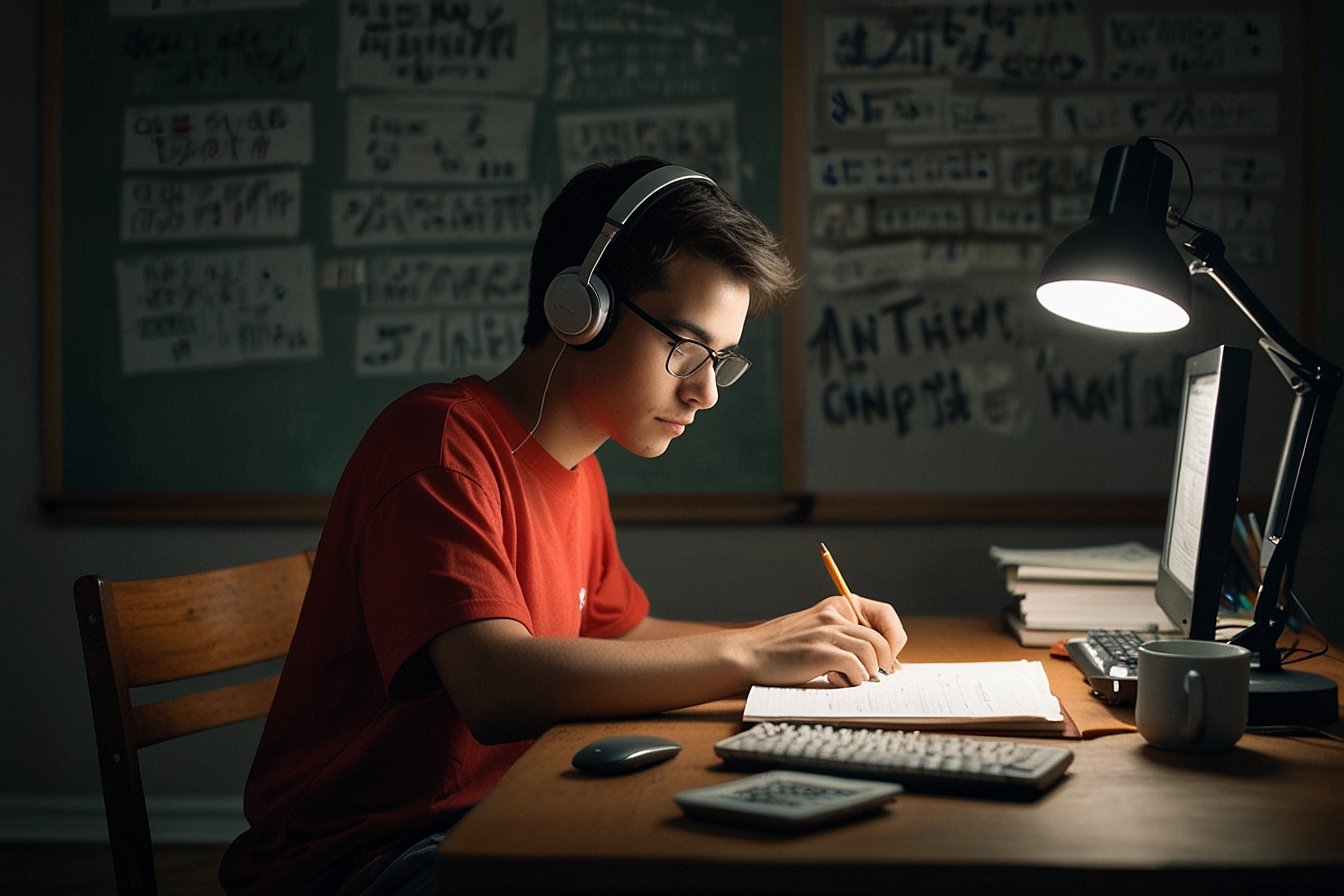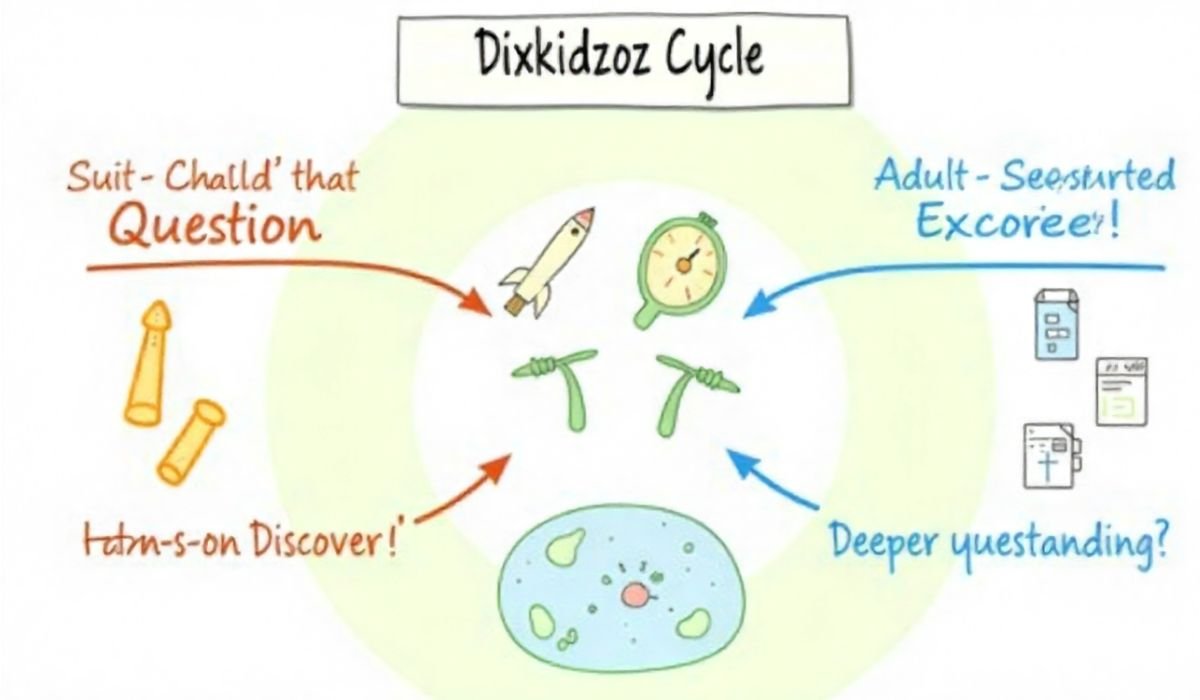Imagine this: you’re grinding away on calculus problems, feeling like you’re finally getting it. Then, you switch to reviewing biology terms. Suddenly, calculus feels like a distant, confusing memory. Frustrating, right? Weirdly enough, that feeling of “losing it” might actually be the key to locking knowledge in for good. That’s the surprising twist behind the RemixPapa study approach – a fresh take on learning that feels less like a chore and more like creating a killer playlist for your brain.
Forget the all-nighters and passive re-reading. The RemixPapa study method isn’t about brute force; it’s about smart mixing. Think of it like being a DJ for your own learning. Instead of playing one song (or studying one topic) on repeat until it’s boring and ineffective, you blend different tracks (topics, skills, concepts) together. The result? Deeper understanding, longer-lasting knowledge, and way less study dread.
So, What Exactly is the RemixPapa Study Method?
At its core, the RemixPapa study philosophy borrows from powerful, research-backed techniques like interleaving and spaced repetition, but wraps them up in a more intuitive, flexible package. It’s not a rigid formula, but a mindset shift.
Here’s the breakdown:
- Mix It Up (Interleaving): Instead of blocking out hours for just one subject (like doing 50 algebra problems in a row), you deliberately switch between different but related topics or types of problems within a single study session.
- Example: Studying history? Don’t just read chapters 4, 5, and 6 sequentially. Read part of chapter 4, then jump to a key concept from chapter 2, then tackle a primary source analysis question related to chapter 5, then revisit a tricky term from chapter 4.
- Why it works: Mixing forces your brain to constantly retrieve information and identify subtle differences between concepts. This deeper processing builds stronger neural connections and improves your ability to apply knowledge flexibly.
- Space It Out (Spaced Repetition): Cramming might get you through tomorrow’s quiz, but it won’t build lasting knowledge. The RemixPapa study approach emphasizes revisiting material over increasing intervals of time.
- Example: Learn new Spanish vocabulary on Monday. Review it briefly on Tuesday. Then review it again on Thursday, then the following Monday, then maybe two weeks later.
- Why it works: Each time you struggle slightly to recall something (that feeling of “it’s on the tip of my tongue!”), you strengthen the memory trace. Spacing out reviews makes this effortful recall more potent for long-term storage.
- Embrace the Struggle: This is crucial! When you first switch topics or revisit something after a break, it feels harder. Your brain might fumble. This desirable difficulty is actually where the magic happens. That feeling of effort signals your brain is working hard to retrieve and connect information, making the learning stickier.
The RemixPapa Difference: It’s about making these powerful techniques feel less clinical and more adaptable. It encourages you to find the “mix” that works for you – blending subjects, question types, active recall methods (like flashcards or self-testing), and review schedules in a way that feels dynamic and engaging. Think of it as your personalized learning remix.
Why Your Old Study Habits Might Be Letting You Down (And How Remixing Helps)
Most of us default to “blocked practice” – focusing intensely on one thing for a long time. It feels productive because it’s smoother in the moment. But research consistently shows it’s often less effective for long-term retention and transferable skills.
Before vs. After: The RemixPapa Study Transformation
| Aspect | Traditional Blocked Study | RemixPapa Study Approach |
| Structure | Long sessions on one topic (e.g., 2 hrs Chemistry) | Shorter bursts mixing topics/skills (e.g., 30 min Chem problems, 20 min Bio diagrams, 30 min Chem concepts) |
| Review | Crammed before tests; rarely revisited | Material strategically revisited over days/weeks |
| Feeling | Smooth during practice, but quick forgetting | Feels harder initially, but recall improves long-term |
| Outcome | Short-term memorization; struggles with application | Deeper understanding; better problem-solving; resilient memory |
| Engagement | Can become monotonous and draining | More dynamic; feels like active problem-solving |
Read also: 5 Digital Education Tools Making Distance Learning Easier For Students
Getting Started with Your Own RemixPapa Study Session
Ready to ditch the grind and try remixing? It’s simpler than you think. You don’t need fancy apps (though some can help with spacing), just a shift in approach.
- Plan Your Mix: Look at what you need to cover. Identify 2-3 related topics, concepts, or types of problems. Example: For a math test: Algebraic equations, Geometry proofs, Word problems.
- Set Your Timer: Start small! Try 20-30 minute focused blocks. Work on one element of your mix for that block.
- Switch It Up: When the timer goes off, consciously switch to a different element in your planned mix. Don’t just finish the problem you’re on if it will take ages – wrap up your current thought and switch.
- Embrace Retrieval: Don’t just passively review notes when you switch back to a topic. Actively try to recall key points, formulas, or steps before looking anything up. Use flashcards, write summaries from memory, or explain it out loud.
- Schedule Your Revisits: Make a quick note of topics that felt tricky. Plan to revisit them tomorrow, then in a few days, then next week. Use a planner, calendar reminder, or a simple spaced repetition app like Anki.
- Review & Refine: After a few sessions, notice what works. Does mixing specific subjects feel helpful? Do you need shorter blocks? Tweak your “remix” for next time.
The key is intentional variety and embracing the challenge of switching gears. It might feel messy at first, but stick with it – the payoff in understanding is huge.
Real-World Proof: It’s Not Just Theory
This isn’t just some abstract idea cooked up in an ivory tower. The principles behind the RemixPapa study method are grounded in solid cognitive science and have shown real results:
- Music to My Ears (and Brain): A classic study had musicians practice different musical sequences. One group practiced each sequence in blocks (AAAA, BBBB, CCCC). Another group interleaved the sequences (ABC, ABC, ABC). Guess which group performed significantly better when tested on playing the sequences? The interleavers! Their brains had learned to distinguish and recall each sequence more flexibly.
- The Baseball Brain: Researchers tested baseball players’ ability to identify pitch types (fastball, curveball). Players who learned via interleaved practice (seeing different pitches mixed together) became far better at accurately predicting the pitch type in real-time simulations than those who learned via blocked practice. Their brains got better at the recognition and discrimination needed in the actual game.
- Medical Marvels: Studies on medical students learning to interpret ECG results found that interleaving different types of heart conditions led to dramatically better diagnostic accuracy later on compared to studying each condition in isolation. Mixing it up built better pattern recognition skills.
The lesson? Whether it’s scales, fastballs, or heart rhythms, mixing practice builds adaptable, applicable skills. The RemixPapa study approach brings this power to your desk.
5 Quick Takeaways to Remix Your Learning Today
- Ditch the Marathon Sessions: Break study time into shorter chunks focused on different but related topics or skills.
- Switch Before You’re Comfy: Force yourself to change gears while it still feels slightly challenging. That struggle is key!
- Recall, Don’t Just Reread: When revisiting material, actively try to remember it before peeking at your notes or textbook.
- Space is Your Friend: Plan to review material multiple times over increasing intervals (e.g., day 1, day 3, day 7, week 2).
- Be Your Own DJ: Experiment! Find the mix of subjects, timing, and recall techniques that keeps you engaged and challenged.
The RemixPapa study approach isn’t a magic bullet, but it’s a powerful toolkit based on how our brains actually learn best. It turns the frustration of forgetting into the fuel for deeper, longer-lasting understanding. It transforms studying from a passive slog into an active, almost creative process of building connections.
So, what will you remix first? Give it a shot in your next study session. Mix up those topics, embrace the initial fumble, and see if you don’t feel a difference in how solidly the knowledge sticks. I’d love to hear how it goes for you – share your remixing wins (or challenges!) in the comments below!
FAQs:
- Doesn’t switching topics constantly waste time?
It feels less efficient initially, but the depth of learning and long-term retention you gain far outweighs the initial time “cost.” You spend less time re-learning later. - Is this only for certain subjects?
Not at all! It works brilliantly for problem-based subjects (math, physics), concept-heavy subjects (history, biology), and skill-based learning (languages, music, coding). Adjust your “mix” accordingly. - How long should my “mixed” study blocks be?
Start with 15-30 minutes per topic within a session. Adjust based on your focus span and the complexity. The key is switching before mastery in that moment. - I’m used to cramming. Can RemixPapa still help before a test?
Absolutely! While spaced repetition is best started early, even mixing related topics during your review sessions (instead of blocking) will improve your recall and application during the test itself. - Do I need special apps or tools?
Nope! A timer, your materials, and a planner for scheduling reviews are enough. Apps like Anki (flashcards) or spaced repetition planners can streamline the review scheduling. - Won’t this make studying even harder?
It makes it feel harder during the session because you’re actively retrieving and discriminating between ideas. This “desirable difficulty” is precisely what makes the learning stronger and more durable. It gets easier as your brain adapts! - Can I combine this with other techniques?
Definitely! The RemixPapa study approach complements techniques like active recall (self-testing), elaborative interrogation (explaining why), and concrete examples beautifully. It’s a framework for organizing those techniques effectively.
You may also like: Statekaidz.com: Where Learning Explodes into Adventure for Curious Kids











